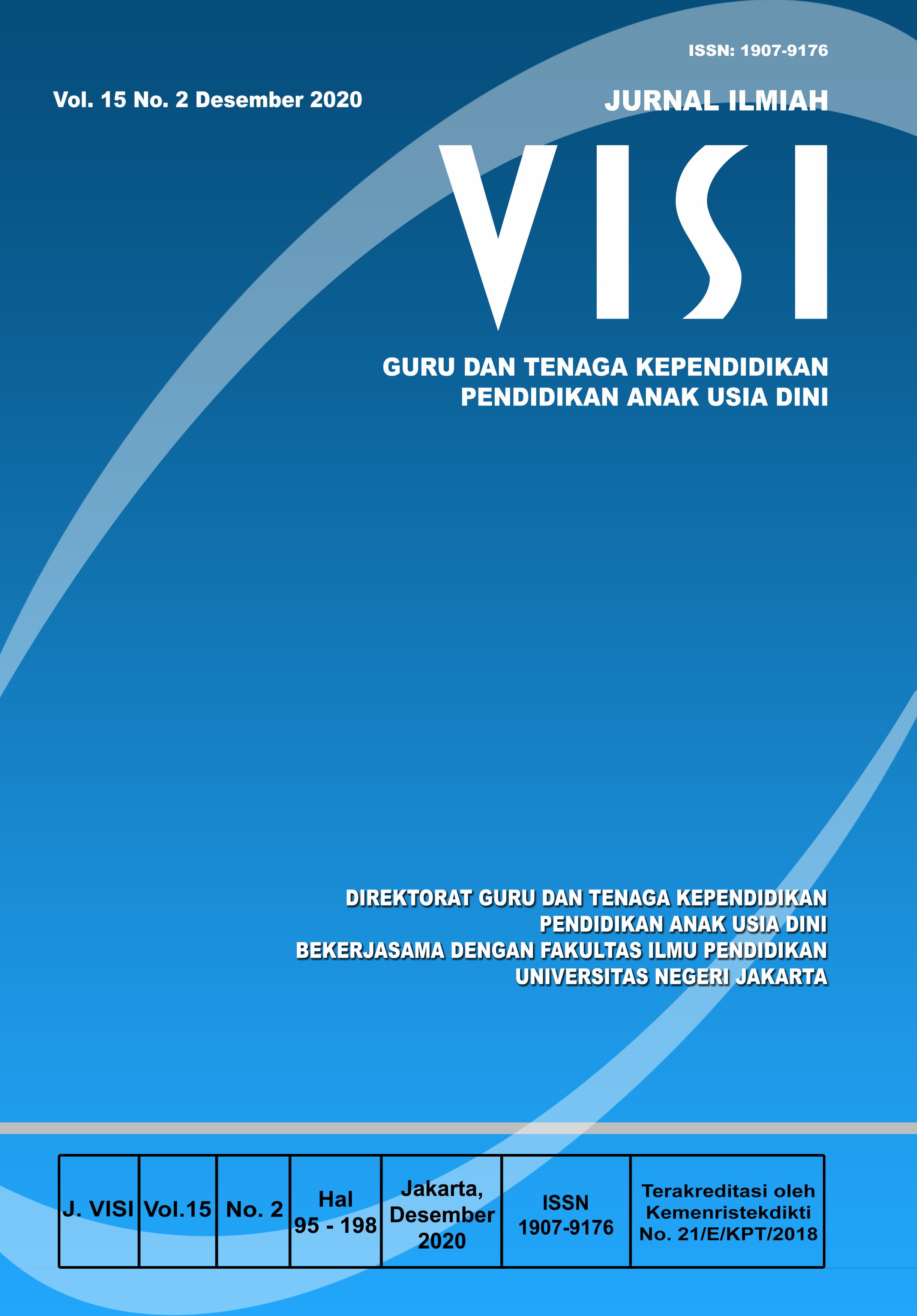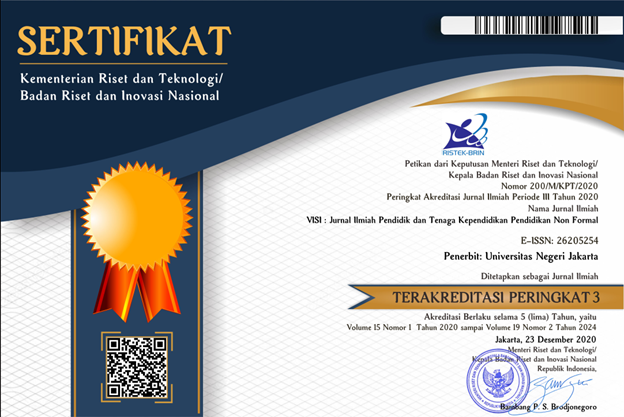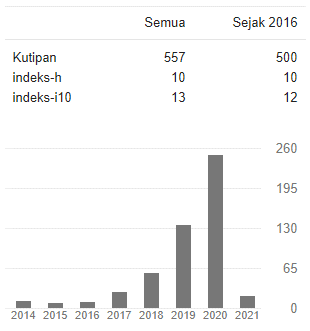INOVASI MODEL PEMBELAJARAN JARAK JAUH PROGRAM KESETARAAN PAKET C DI MASA PANDEMI COVID-19
DISTANCE LEARNING MODEL INNOVATION OF PACKAGE C EQUALITY PROGRAM DURING COVID-19 PANDEMIC
DOI:
https://doi.org/10.21009/JIV.1502.2Keywords:
inovasi, model pembelajaran jarak jauh, pandemi COVID-19, program kesetaraan paket c, innovation, distance learning model, equality program package c, COVID-19 pandemicAbstract
Pandemi COVID-19 telah menghambat proses belajar dan pembelajaran baik pendidikan formal maupun pendidikan non formal seperti pada program kesetaraan Paket C. Guru atau tutor dituntut untuk dapat menghadirkan inovasi pembelajaran yang efektif. Pembelajaran jarak jauh dapat menjadi salah satu alternatif yang dapat diterapkan. Artikel ini bertujuan untuk mendeskripsikan inovasi model pembelajaran jarak jauh pada Program Kesetaraan di wilayah Purwokerto Selatan pada masa pandemik COVID-19. Jenis penelitian ini adalah penelitian kualitatif dengan metode etnografi. Pengumpulan data menggunakan tiga teknik yakni; melakukan observasi, wawancara, dan studi dokumen. Setelah data diperoleh kemudian peneliti melakukan analisis, adapun teknik analisis yang digunakan yakni; mereduksi, analisis dan penarikan kesimpulan. Hasil penelitian ini menunjukkan bahwa terdapat tiga metode pembelajaran yakni daring (live book, kuis, recording materi), luring (proyek karya), dan kombinasi (group observation or self-observation, rekaman materi, diskusi, investigasi dan webinar, dan apresiasi belajar). Ketiga metode pembelajaran ini merupakan modifikasi sekaligus adaptasi pembelajaran jarak jauh di masa pandemi COVID-19.
The COVID-19 pandemic has hampered the learning and its process at all levels of education ranging from early childhood education to college. In addition to formal education, non-formal education such as the Package C Equality Program has also undergone drastic changes in the teaching and learning process. From that problem teachers or tutors are required to be able to present effective learning innovations. Distance learning can be one of the applicable alternatives. This article aims to describe the innovation of distance learning models in the Equality Program in the South Purwokerto region during the COVID-19 pandemic. This study is a field research with a qualitative approach. Data was collected using three techniques, namely; observations, interviews and document studies. The data then analysed based on these steps; reduction, analysis and withdrawal of conclusions. The results of this study show that there are three methods of learning namely online (live book, quiz, recording material), offline (project work), and combination (group observation or self-observation, recording material, discussion, investigation and webinar, and appreciation of learning). These three learning methods are both modifications and adaptations of distance learning during the COVID-19 pandemic.
Downloads
Published
How to Cite
Issue
Section
License
Authors who publish with this Journal agree to the following terms:
- Author retain copyright and grant the journal right of first publication with the work simultaneously licensed under a creative commons attribution licensethat allow others to share the work within an acknowledgement of the work’s authorship and initial publication of this journal.
- Authors are able to enter into separate, additional contractual arrangementfor the non-exclusive distribution of the journal’s published version of the work (e.g. acknowledgement of its initial publication in this journal).
- Authors are permitted and encouraged to post their work online(e.g. in institutional repositories or on their websites) prior to and during the submission process, as it can lead to productive exchanges, as well as earlier and greater citation of published works.
- Users/public use of this website will be licensed to CC BY-NC-SA Creative Commons Attribution-NonCommercial-ShareAlike 4.0 International License









